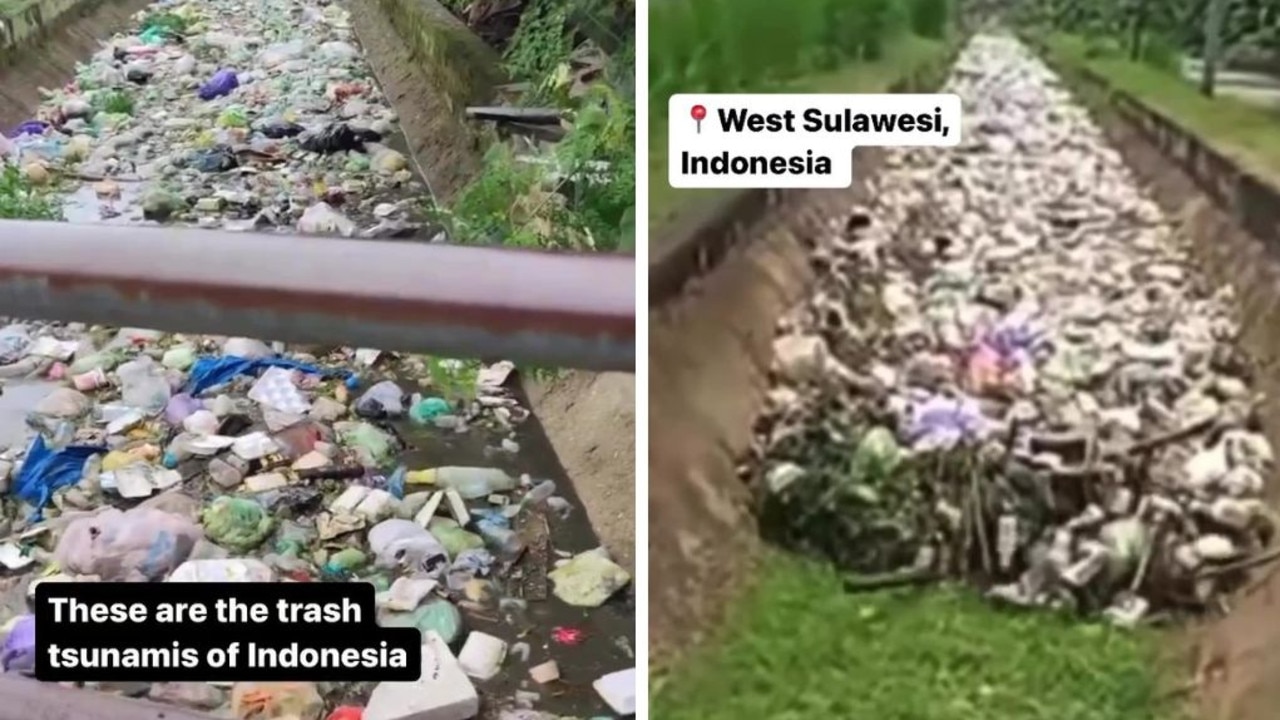Shocking footage has emerged of “trash tsunamis” flowing down waterways in Indonesia as plastic waste piles up in the tourist hotspot.
In the clips shared to social media, masses of garbage could be seen charging down canals and storm drains, the water carrying it virtually invisible for all of the junk.
“These are the trash tsunamis of Indonesia and it will all end up in the ocean,” clean-up environmentalist Gary Bencheghib, who shared the clip, wrote.
“We can no longer turn a blind eye to these waves of plastic.”
Users shared their shock at seeing the masses of waste, with one saying, “The world needs to do more.”
“The trash is not the problem. It’s the people. If they don’t waste from the beginning, there will still be trash but maybe better managed,” another wrote.
Others called for a more constructive approach than shaming the people who had contributed to the trash.
“It amazes me to read some of the answers here. Every single one of us that have posted here. ALL OF US USE PLASTIC. Therefore we are part of this problem,” one commenter wrote, garnering more than 200 likes.
“This video and the current pollution is because we use single plastic use. Start by changing your plastic habits. We can all do it together.”
The so-called trash tsunamis were only the latest in a string of viral clips that reveal a serious problem with waste disposal in Indonesia.
In January, Australian travellers were shocked by photos of a popular Bali beach strewn with rubbish.
Tourist Tracey Hull shared the images on a popular Facebook group for Australians in Bali, along with the caption, “At least I know where the sewerage outlet is in Legian, absolute disgusting today.”
“That was my third time visiting Bali,” Ms Hull told news.com.au at the time.
“It (the rubbish) happens every time, in December it was full of plastic cups and straws and bags, all Indonesian brands.
“It was like swimming in the tip.”
So what’s really going on with the rubbish problem?
In December, Marine Garbage Evacuation Detection Co-ordinator of the Badung Regency Environmental and Sanitation Service Made Gede Dwipayana said the entire Indonesian coast had been covered with rubbish.
Volunteers had collected a massive amount of the waste from October to December.
“A total of 600 tonnes. That’s all on the … coast of Badung Regency in the west,” Mr Dwipayana told CNN Indonesia.
“Until now there have been no problems, even though the weather was extreme, we worked wearing full raincoats and there were no problems.”
He predicted January to be the peak of the problem due to the high number of tourists and the wet season.
During December and March, heavy rain and winds force rubbish down rivers through the regency and then they accumulate on the coastline.
More Coverage
Rubbish is a huge issue in Bali, and Indonesia recorded 68.5 million tonnes of waste in 2021.
— with Kate Schneider

